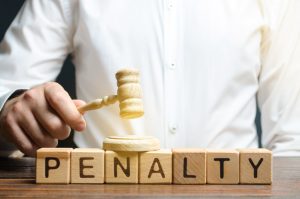In the world of insurance claims, negotiation is more than a mere skill—it’s an art. As a public adjuster, your proficiency in this art can mean the difference between a disappointing settlement and a beneficial one, particularly when dealing with complex roof damage claims. In this exploration, we will outline five specific tactics that can dramatically enhance your negotiation abilities. By learning to communicate assertively, compile comprehensive evidence, leverage industry knowledge, understand the psychology of decision-making, and building relationships, you’ll be well equipped to negotiate favorable settlements for your clients.
1. Perfecting Assertive Communication
The ability to express yourself clearly and assertively is paramount in negotiations. Assertive communication is about stating your client’s position firmly and succinctly, without compromising respect or professionalism. When met with resistance or dispute from the insurance provider, it’s essential to articulate your client’s position robustly and confidently.
However, assertive communication extends beyond expressing your views—it also involves active listening and thoughtful responses. Ask pointed questions, seek clarity, and don’t hesitate to challenge decisions that you deem unjust. Your role is to stand up for your client, and to do so effectively, you must master assertive communication.
2. Compiling Comprehensive Evidence
Think of evidence as your negotiation arsenal—without it, your arguments can quickly fall flat. For roof damage claims, a comprehensive collection of evidence can decisively influence the negotiation outcome. Start by securing clear, detailed photographs of the damage from every angle. Follow up with professional evaluations of the damage and the associated repair costs.
To strengthen your position, also gather supporting evidence, such as weather reports, which can verify the cause of the damage. Having strong evidence not only solidifies your case but also underscores your dedication to securing a fair settlement for your client.
3. Leveraging Industry Knowledge
A thorough understanding of the insurance industry landscape is indispensable when negotiating claims. This means staying current on policy changes, industry trends, relevant court rulings, and insurance company practices. With this knowledge, you can effectively counter any resistance from the insurer and ensure your client’s claim is evaluated fairly.
Demonstrating industry knowledge also positions you as a competent negotiator, which can sway the negotiation in your favor. Insurers are more likely to negotiate fairly if they recognize that you are an informed and savvy professional.
4. Understanding Decision-Making Psychology
An often-overlooked aspect of negotiation is the psychological element. Understanding how people make decisions can help you influence the negotiation process in your favor. For example, research shows that presenting the same options in different ways (a tactic known as “framing”) can significantly influence decisions. Also, people are usually more motivated to avoid losses than to acquire equivalent gains (known as “loss aversion”).
Using these psychological insights, you can tailor your negotiation approach to increase your chances of a favorable settlement. For instance, when discussing damage estimates, framing the discussion around potential losses for your client might be more effective than focusing only on the cost of repairs.
5. Building Relationships
Effective negotiation isn’t just about the immediate claim; it’s also about building relationships for future dealings. Building rapport with insurance company representatives can make negotiations smoother and more productive. Show respect, understanding, and professionalism in all interactions. Over time, this relationship building can make a significant difference in your negotiations, leading to quicker resolutions and better outcomes for your clients.
Conclusion
The power of a public adjuster lies not only in their ability to interpret complex policies and assess damage accurately but also in their negotiation skills. By honing your assertive communication, collecting and presenting strong evidence, leveraging industry knowledge, understanding the psychology of decision-making, and building relationships, you can significantly enhance your negotiation prowess.
These are not merely tactics—they are essential tools in your arsenal as a public adjuster, enabling you to advocate effectively for your clients and negotiate settlements that truly reflect their best interests. Remember, as a public adjuster, you’re not just settling claims; you’re securing futures.


